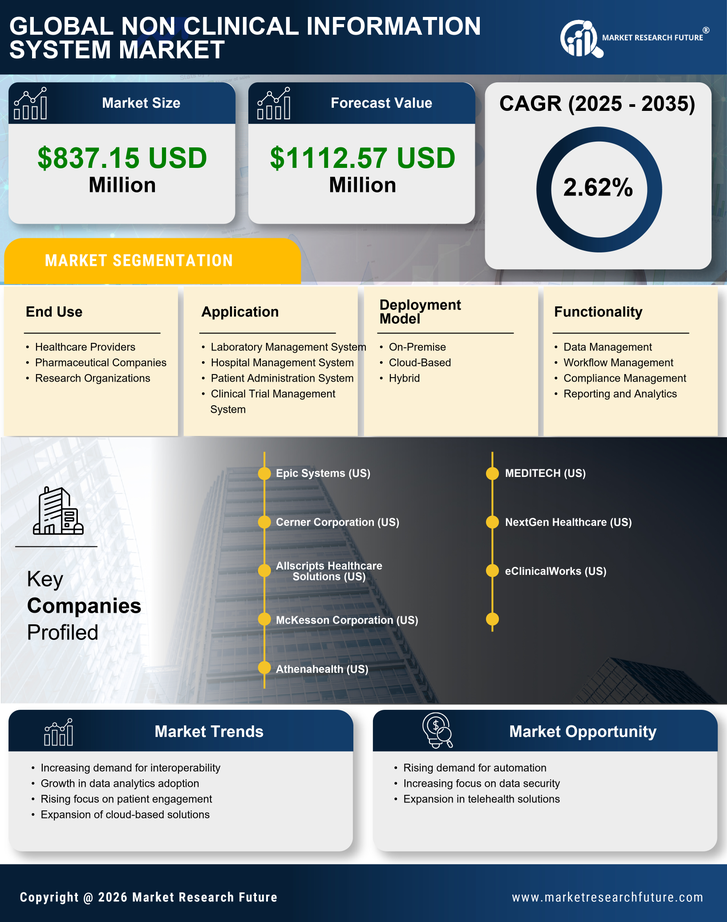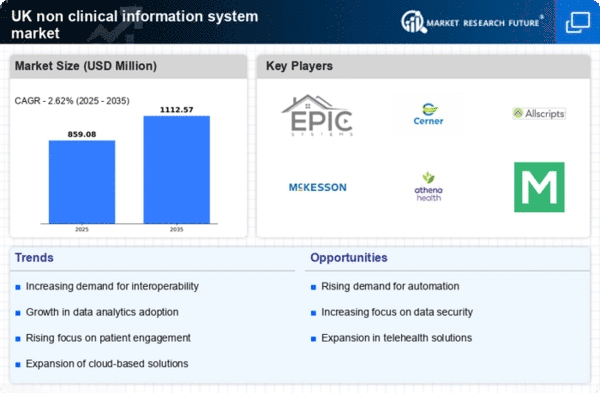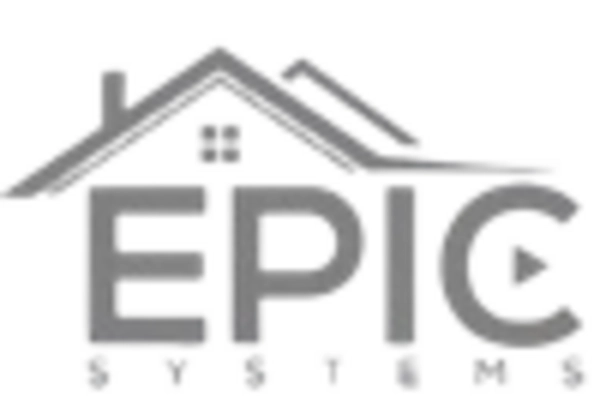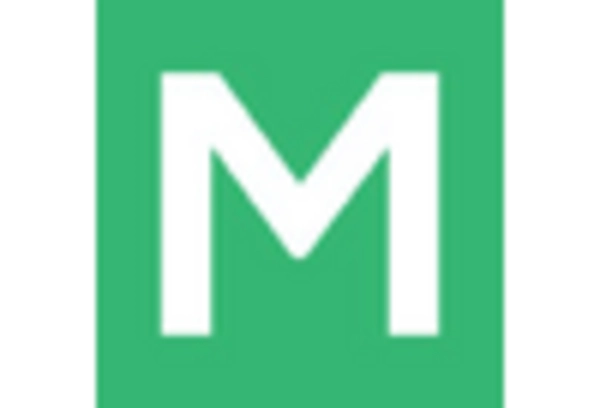Regulatory Compliance and Standards
The non clinical-information-system market is significantly influenced by the evolving landscape of regulatory compliance and standards in the UK. Healthcare organisations are required to adhere to stringent regulations regarding data management, patient privacy, and operational protocols. The implementation of non clinical information systems aids in ensuring compliance with these regulations, thereby mitigating risks associated with non-compliance. For instance, the General Data Protection Regulation (GDPR) mandates strict data handling practices, compelling organisations to invest in systems that facilitate compliance. As the regulatory environment continues to evolve, the demand for robust non clinical information systems is expected to grow, as organisations seek to avoid potential fines and reputational damage.
Growing Focus on Patient-Centric Care
The non clinical-information-system market is increasingly driven by a growing focus on patient-centric care within the UK healthcare landscape. As patients become more involved in their healthcare journeys, organisations are recognising the need for systems that facilitate better communication and engagement. Non clinical information systems that support patient scheduling, feedback collection, and care coordination are becoming essential tools for healthcare providers. This shift towards patient-centricity is likely to enhance patient satisfaction and outcomes, thereby driving further investment in non clinical information systems. The emphasis on personalised care is expected to shape the future of the market, as organisations seek to meet the evolving expectations of patients.
Rising Demand for Operational Efficiency
The non clinical-information-system market experiences a notable surge in demand for operational efficiency across healthcare facilities. As organisations strive to streamline processes, reduce costs, and enhance service delivery, the adoption of non clinical information systems becomes increasingly vital. In the UK, healthcare providers are investing in these systems to automate administrative tasks, thereby allowing staff to focus on patient care. Reports indicate that operational inefficiencies can account for up to 30% of healthcare costs, prompting a shift towards solutions that enhance productivity. This trend is likely to continue, as the need for efficient resource management and improved patient outcomes drives further investment in non clinical-information-system technologies.
Technological Advancements in Healthcare
Technological advancements play a crucial role in shaping the non clinical-information-system market. Innovations such as cloud computing, big data analytics, and mobile applications are transforming how healthcare organisations manage non clinical operations. In the UK, the integration of these technologies into non clinical information systems enhances data accessibility and decision-making processes. For example, the use of data analytics can lead to improved resource allocation and operational insights, which are essential for effective management. As technology continues to evolve, the non clinical-information-system market is likely to witness increased adoption of advanced solutions that support healthcare providers in delivering high-quality services.
Increased Investment in Healthcare Infrastructure
The non clinical-information-system market is benefiting from increased investment in healthcare infrastructure across the UK. As the government and private sector allocate more resources towards modernising healthcare facilities, there is a corresponding rise in the demand for non clinical information systems. These systems are integral to the efficient operation of healthcare facilities, supporting functions such as billing, human resources, and supply chain management. Recent reports suggest that the UK healthcare sector is projected to invest over £10 billion in infrastructure improvements by 2026, which is likely to include significant investments in non clinical information systems. This trend indicates a robust growth trajectory for the market as organisations seek to enhance operational capabilities.

















